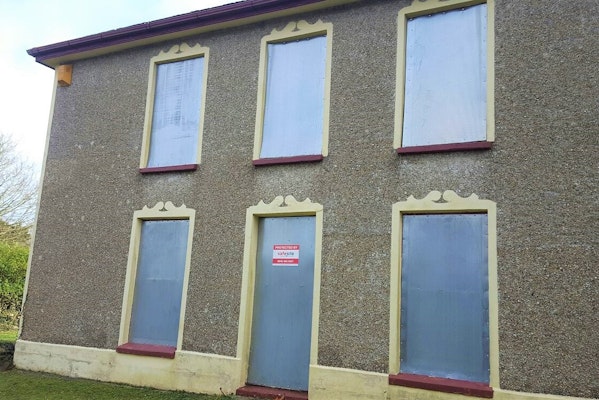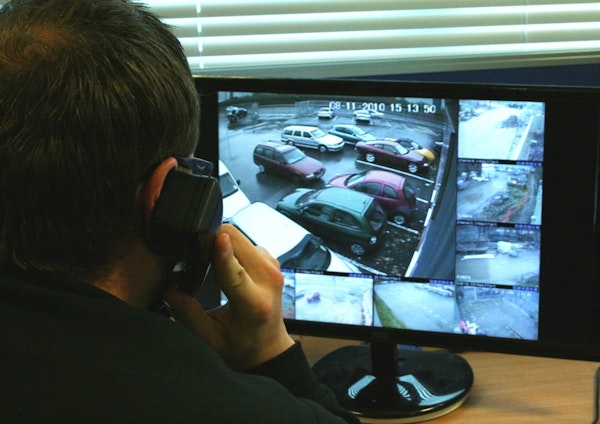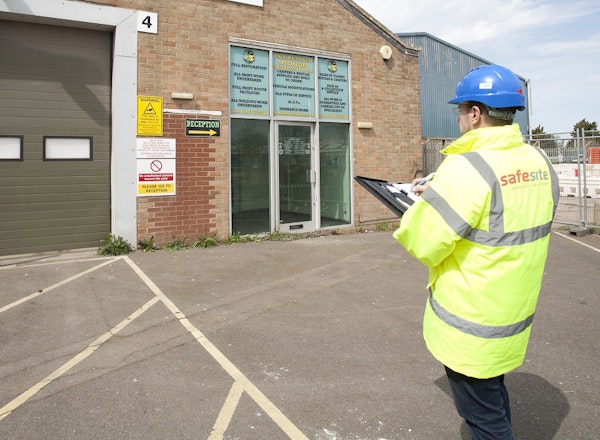- Fully qualified & insured teams
- Free site assessments
- Rapid response
- Rated Excellent
The Importance of Empty Property Inspections
Your property’s going to be sitting vacant and you’re well aware of the risks involved! So, you’ve closed everything up and secured it against possible intrusion and damage – job done!
Or is it? In fact, securing your vacant property adequately is only the first step in protecting it. Any empty premises must be checked regularly and not realising, or acting upon the need for empty property inspections puts both your property and yourself at further risk.
The risk of ignoring inspections
The reason property inspections are needed when a property’s vacant include two essential matters of compliance, which could involve considerable costs if problems arise and you haven’t been completing inspections …
1) Insurance
Buildings and contents insurance is always a must for a property, but when you sign up to a policy you’re agreeing to comply with your insurer’s mandatory requirements. This means that not only are you obliged to inform your insurers that the property will be vacant for a period of time, you must also then carry out any actions they require in order to protect the property whilst it’s vacant.
This is because insurers recognise that vacant properties are particularly vulnerable, so you’re likely to be given a checklist of steps they require you to take to minimise risk. Insurance companies consider such checklists to offer evidence of property owners ‘doing their bit’ to pro-actively protect the property, rather than passively expecting insurers to pay up in the event of problems.
One common requirement on an insurer’s checklist is that the property should be inspected regularly – and it’s vital that you don’t just do this, but can also show evidence of having done so.
Any failure to do so may be considered by insurers as non-compliance, in which case the insurance company may refuse any claims arising, including a claim of costs …
2. Duty of Care
All property owners have a duty of care in respect of their property or premises. Whether the empty property is commercial or residential, this duty of care requires property owners to ensure (or be able to show that they have made reasonable efforts to ensure) that any visitors to the property are not put at risk.
This extends to visitors who may even be unauthorised, such as burglars or would-be squatters, as well as neighbours who might just be visiting to put the bins out or open curtains or may suffer problems as a result of the property being unattended and its condition not monitored.
If accidents, injuries and damage occur as a result of neglecting the property, you could be open to litigation from anyone affected and could find yourself paying huge costs in damages if you are found to have failed in your duty of care.
Prevention and protection
So how can regular inspections support you in the prevention of problems and the protection of your property?
Inspections are effective because they’re a means of keeping up to date with the site and checking for any potential security issues. They can be particularly effective when used in conjunction with security measures such as monitored CCTV, which can alert to the need for inspections to take place quickly as follow up to identified issues, such as attempted unauthorised access or vandalism or damage following extreme weather.
This type of protection is active prevention of problems – imagine what happens if intruders attempt to break in initially but then return and are able to succeed because there was no one checking the property regularly? Or a neighbour critically injured by falling masonry, when any suspected damage to the building following extreme weather could easily have been put right if only an inspection had taken place.
Check out the checklist
Having an idea of what to look out for in property inspections is a good way to see how important they are – and what some of the risks to the property could be. Any checklist is essentially helping you to look out for any signs of …
- Tampering of security measures (such as attempts to disable alarms or CCTV systems, tampering with security screens and hoardings);
- Rubbish and fly-tipping, which may cause a fire risk and health hazard;
- Leaks and weather damage;
- Property maintenance issues which could cause problems if allowed to deteriorate;
- Anti-social behaviour, such as graffiti, vandalism.
As a guide, the checklist for inspecting empty property should include:
- Check inside and out for signs of tampering and unauthorised access;
- Check and secure property access points;
- Check and secure the property’s perimeter;
- Change locks as required;
- Replace or board up damaged access points;
- Check and secure letterboxes;
- Remove and clear any rubbish that has accumulated (including any fly-tipped rubbish or items thrown or blown into the garden areas);
- Check utilities – these should be switched off when the property is closed up and the utility providers informed, but it’s still advisable to check that nothing has been tampered with;
- A scheduled date of next inspection (every week is advisable);
- A record of all dates and times of inspection visits [previous, current, next etc];
- A record of remedial action taken in response to any problems found – including security or damage, such as weather damage repairs, alarm checking.
Evidence or expense?
Once the practical actions of carrying out inspections is underway, it’s much easier to then be able to provide the evidence needed to prevent costly insurance claims and legal wrangles when trying to evict squatters or prosecute vandals or arsonists who took advantage of the property’s lack of inspections. As such, the final important aspect of empty property inspections is keeping the evidence …
- Keep checklists as ‘working documents’ to show every aspect of inspections;
- Keep records of all inspection visits schedules, including when and who by – everything should be signed and dated in order to be compliant with insurer’s requirements;
- Offer proof of presence, such as ‘before’ and ‘after’ photographs (dated) of any issues noted and remedial action / repairs taken;
- Keep print-outs of reports, such as monitored CCTV reports, alongside checklists, to demonstrate action in response to issues.
Overall, carrying out property inspections, or contracting a professional security company to undertake these on your behalf may take time and cost a little money, but these costs usually compare very favourably with the considerable amounts of time (and money) it can take to put right problems which arise when properties are neglected and inspections ignored.
Request a free no-obligation quote
We respond in under 30 mins on average (excl. weekends)


